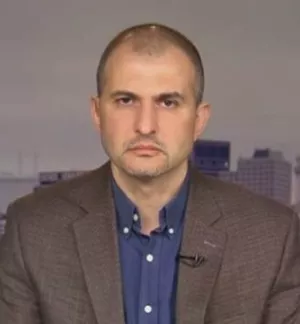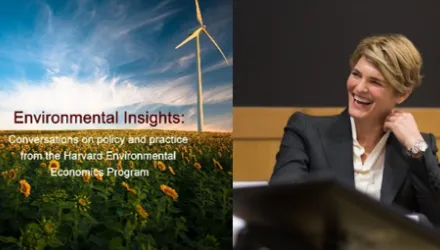Among those in the top tier of America’s political establishment, rarely has anyone been as criticized for their views on Russia in recent years as Tulsi Gabbard. That criticism, however, did not prevent her ascent to the top of U.S. President Donald Trump’s team, where she is now serving as the Director of National Intelligence (DNI), acting as chief intelligence integrator and interpreter for the president.
Gabbard was born on April 12, 1981, in Leloaloa, American Samoa. From 2002 to 2004, she served as a member of the Hawaii House of Representatives, according to her Congressional biography. In 2003, while still serving in her state’s House of Representatives, she joined the Hawaii Army National Guard, the beginning of nearly two decades of military service. She served in Iraq from 2004 to 2005, and eventually transferred to the U.S. Army Reserve in 2020. In 2013, she was elected to the U.S. House of Representatives as a Democrat, representing Hawaii for four consecutive terms through to Jan. 3, 2021.
In January 2019, she announced she was running for president of the United States on the Democratic ticket. She ultimately suspended her presidential campaign in March 2020 and endorsed Joe Biden. In 2024, Gabbard announced that she was joining the Republican Party.1 In the following year, Trump successfully nominated her to the post of Director of National Intelligence.
Predictably, her views—particularly her opinions on Russia— attracted close scrutiny in the interval between her presidential bid announcement in 2019 and her confirmation as DNI in 2025. For instance, she was accused of failing to immediately denounce the launch of Russia’s full-blown invasion into Ukraine on Feb. 24, 2022 and of repeating Russia’s arguments for this invasion. Weeks before the invasion, Gabbard claimed “Biden can very easily prevent a war with Russia by guaranteeing that Ukraine will not become a member of NATO.” That same year Gabbard also took heat for claiming that she was "deeply concerned" over claims about biological weapons in Ukraine, endorsing Russian claims that the U.S. and Ukraine were involved in dangerous biological research before the war. She has also repeatedly claimed that Ukraine is not a democracy.
For these and other opinions, she has been described by some of her political rivals and some of the U.S. media as: a “darling of Russia's state media," the "favorite of Russia’s state media," "parroting false Russian propaganda," a "Russia apologist," a "Russian asset," "the favorite of the Russians" and "treasonous.” Unfazed, Gabbard pursued her political career, occasionally firing back with counteroffensives like a defamation lawsuit against Hillary Clinton in 2020 that alleged the former secretary of state and 2016 Democratic presidential nominee "lied" about the Hawaii congresswoman's ties to Russia during a 2019 interview (she later dropped that suit). She also refused to be pressed into a full reversal of her position on Edward Snowden.
While in the House of Representatives, Gabbard co-sponsored legislation in 2020 that would have dropped charges against Snowden. When questioned at a DNI confirmation hearing about whether Edward Snowden’s leaks made him a traitor, Gabbard responded by stating simply that he “broke the law.”
The compilation of Gabbard’s views below is part of Russia Matters’ “Competing Views” rubric, where we share prominent American figures’ takes on issues pertaining to Russia, U.S.-Russian relations and broader U.S. policies affecting Russia. All sections may be updated with new or past statements. The quotes below are divided into categories similar to those in Russia Matters’ news and analysis digests, reflecting the most pertinent topic areas for U.S.-Russian relations broadly, and for the drivers of the two countries’ policies toward one another. They are arranged in chronological order.
Saradzhyan, Simon and Angelina Flood. “Tulsi Gabbard on Russia and Ukraine.” Russia Matters, July 10, 2025
The full text of this publication is available via Russia Matters.





